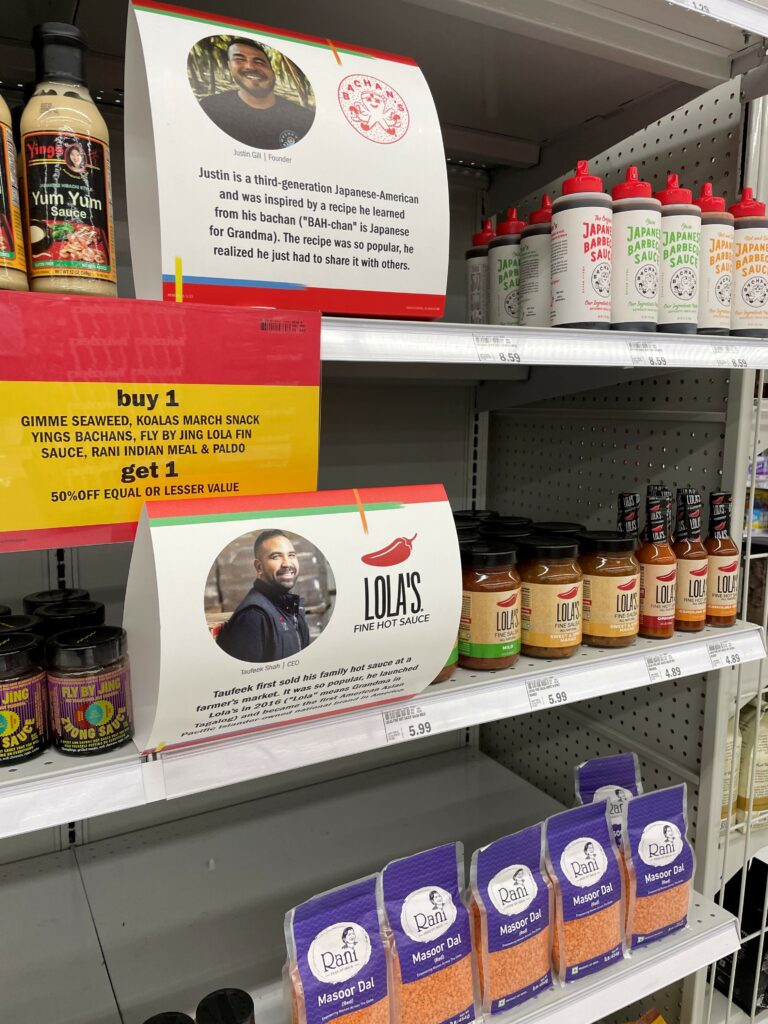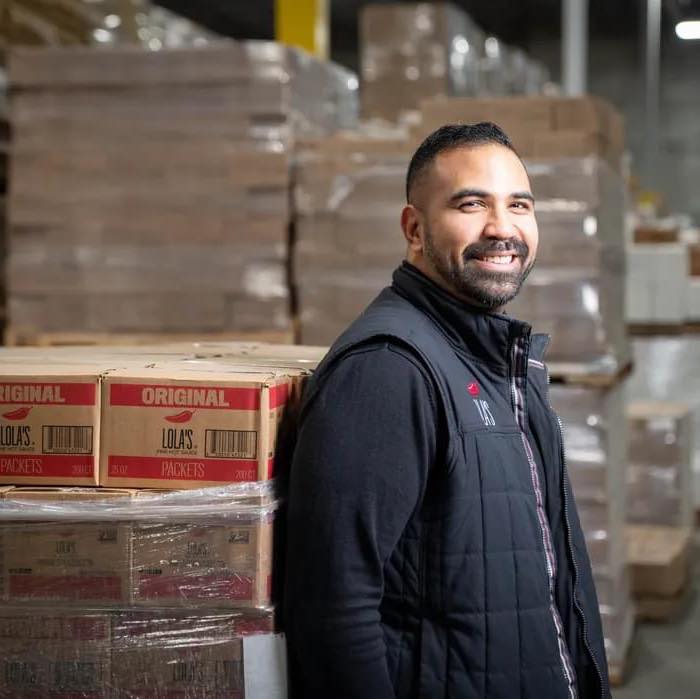Lola’s CEO says retailers’ programs are coming into the ‘limelight’
For small businesses seeking growth for their consumer packaged goods brands, getting their products into grocery stores can be a challenge when a few conglomerate brands supply most of a store’s inventory.
It’s a challenge Taufeek Shah, founder and CEO of Lola’s Fine Sauces, is familiar with overcoming in his time building the business. He said smaller suppliers’ success in selling their product is often still “benchmarked” against the larger, more established brands.
“Some of these retailers, and I’m ashamed to say it, more often than not they use this as a strategy to make money rather than [saying], ‘Let’s really look at investing with a brand,’” Shah said.
He said “it’s very rare” to see smaller businesses try to compete with larger brands typically seen on grocery store shelves, and that’s why supplier diversity programs have an important role to play to provide more ventures with opportunity to grow.

Locally, Lola’s has partnered with Hy-Vee’s supplier diversity initiative and, outside of Iowa, with H-E-B, Walmart and Meijer, which this month included Lola’s hot sauces and the company’s story on a display recognizing May as Asian American and Pacific Islander Heritage Month.
“Not only is it inspiring others to approach Meijer, but Meijer is putting your money where your mouth is because they’re committing to buying tens of thousands dollars’ worth of products and putting your product on the shelf,” Shah said.
Shah shared more about supporting supplier diversity and Lola’s experiences.
This Q&A has been lightly edited and condensed for clarity.
What makes it difficult for small businesses and underrepresented entrepreneurs to connect with grocery stores and compete in that market?
It’s a challenge. We’re very lucky to be in Iowa because Fareway and Hy-Vee, they have great programs to bring in local products. But once you start going outside of Iowa, and beyond, you know, the Casey’s, the Kum and Go, the great Iowa companies, I was not that recognized when it comes to the retail space outside Iowa. You go to the East Coast, which is dominated by Wegmans, Giants, Stop & Shop, Publix. You go to the West Coast, which is dominated by Fry’s, Albertsons, Safeway — these bigger companies, you need to be more of a standout because we’re not local to them.
When it comes down to national expansion, I tell people sometimes growing too fast can be a challenge because if you don’t have the road map to success, or to really understand the partnerships of how these big corporations work, you might end up having to give away two cases of product for free. Or you might have to pay slotting fees, which can be astronomical if you’re not doing it properly. Outside of Iowa, it’s a hefty investment, and that’s why a lot of retailers need a program like this, because it helps a lot of diverse entrepreneurs, minority-owned, women, veterans, that can’t afford to pay two cases for free and then thousands of dollars to get their products on the shelf. It really kind of levels the playing field for the barriers to entry across the retail space.
How did Lola’s get started connecting with retailers and supplier diversity programs?
When we got into Hy-Vee we eventually asked, “How do we get to more Hy-Vee stores?” We got connected to Lomar, which is their distribution center. We asked the question, “How can we partner at the corporate level?” and then we got connected to somebody at corporate, so it’s really just asking those questions. As far as the minority-owned certification, we’ve been doing a lot of trade shows and you just meet a lot of folks. A Filipino guy who owns one of the largest CBD companies in America said, “Hey, you gotta get connected with this Asian organization that I’m with,” so I connected with the U.S. Pan Asian American Chamber of Commerce and it just blew up. It changed my whole perspective.
What makes a supplier diversity program effective for both small businesses and the store offering it?
I think it’s the investment into the brand itself, because growing a consumer packaged-good brand, it’s very expensive. It’s not cheap. It takes a lot of capital. You have to essentially feed the beast until your product sticks, and beyond just the investment and committing to the product. With Meijer, they’re buying the product, they’re funding a “buy one, get one,” but also they’re telling your story. Because people don’t know who your brand is, and not many companies have thousands or even millions of dollars to spend on marketing. By doing this, it’s putting that brand front and center, giving the customers a choice to find out what this product is and learn a little bit more about it, buy it and try it. If it does go well and the customer likes it, they’re going to buy more product. Of course, Meijer is going to make money off of it because we wholesale it to Meijer or any retailer and then they sell it at a markup. It’s a win-win because it helps the business thrive, which then that business can start to invest more with the retailer.
Where do you think there has been progress around supplier diversity overall, and what are areas for improvement?
I started Lola’s back in 2016, 2017, and we were fortunate enough that we grew with Hy-Vee but Kroger had a great program too. Kroger brought us in under their diversity program. I think that a lot of these programs have been there, but now they’re just kind of coming to the limelight. These big corporations, Kroger, Hy-Vee, they have hundreds, thousands of corporate employees — to find the right person can be a challenge. Once you find that person, that person can help you with those decisions. Some of the things that could be improved is I think not many people know how to access these programs. Walmart does a great job because Walmart hosts a program called the Walmart Made in America Summit. They don’t even classify it as diverse-owned. They classify it as “Is your product made in America?” I think being able to host an event, or get the message out that “Hey, we’re looking for some of these things” is the biggest downfall because you just don’t see it very often.
Where are there opportunities for other industries to support supplier diversity?
Supplier diversity is in retail, it’s in food service too. We’re partnered with Sysco. It’s not just retail. Colleges have it too, and then corporations have it as well. A lot of corporations have cafeterias or they have meals for their employees. They have also procurement for diverse-owned products as well. There’s just a lot of great organizations and a lot of folks are looking for these types of products.
